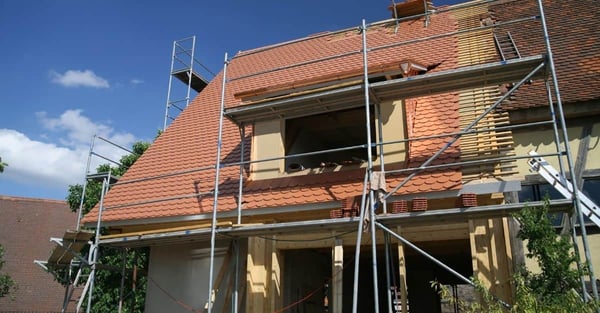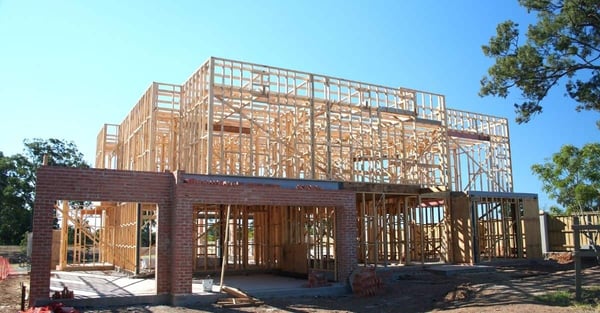There are lots of advantages to building your own home, like choosing the location and having everything custom designed to your specifications. New builds are more complex projects than home renovations, however, with numerous stages and people involved, each of which comes with a price tag. So, how much does it cost to build a house?
How Much Does It Cost to Build a House?
On average, it costs £2250-£2850 per square metre to build a house in London. Note that this is a very rough estimate. There are several factors to take into consideration when putting together an accurate budget for each project.

Costs to Consider When Building a House
Numerous factors determine the cost of building a house, starting with land. Plot prices vary greatly depending on the size, condition, location and whether they come with planning permission.
After that, building design, structure, materials, fittings and fixtures are all major factors. As a rule, the substructure (foundations) and superstructure (floors, walls, roof, cladding, etc.) are the most expensive, accounting for upwards of 25%-30% of the total cost. Other expenses include demolition and landscaping, electrical wiring, plumbing and utilities connection.
Then there are all the different professionals you need to hire along the way. As well as site surveyors and structural engineers (think £500 per survey), you need an architect (5-15% of total budget), construction company and/or individual traders and labourers.
Finally, there are ‘hidden’ costs like legal fees, stamp duty, land tax and planning permission, which currently costs around £450. You’ll also need self-build insurance at approx 1% of your budget. Then there’s building regulations inspection, which costs up to £1800, although you can save on this by hiring traders registered under the Competent Person Scheme who can self-certify their work.

How to Plan for Building a House
If you’re building a house, good planning is essential and pays dividends further down the line by helping you anticipate and budget for costs and unexpected issues.
First, think about where to build. Land is at a premium in London, so you can save by looking outside the capital. Land prices will determine the size of the plot you can afford and, therefore, the size of the house, which in turn influences the cost. Local weather conditions and the quality and features of the ground are also important. Poor quality or sloping ground ramps up the cost of foundations, while delays caused by bad weather will extend your budget. Your location will also determine the number and quality of traders, suppliers and materials, which can also push the price up or down.
Your next decision is whether to project manage the build, hire individual experts and traders, apply for permissions and buy materials yourself or hire a general contractor and/or project manager to take care of it all. On the face of it, this seems like the more expensive option but it saves money in the long run by reducing the overall build time.
Then, think about interior and exterior design. As a rule, the more individual and personalised your home, the more expensive it will be. These days, everyone wants to avoid ‘cookie-cutter’ homes, but bear in mind that standard shapes and structures are cheaper to build than complex ones. Materials are also a factor: timber frames cost more than bricks and concrete. It’s also worth thinking about whether to hire a designer. While this seems expensive, these professionals are expert at making the most of spaces and features like lighting, which can save you money.
The choice and quality of fixtures, fittings and appliances are also important. Kitchens and bathrooms are the most important rooms in the house so you want them done to a high standard. There’s a world of price difference, however, between a ready-made bathroom suite from a major retailer and bespoke fittings or reclaimed period items.
Before embarking on a self-build, always research costs and shop around for quotes. Budget for 10% extra for delays and unexpected issues and beware of going with the cheapest; if it sounds too good to be true, it probably is.
Tags:
Home RenovationAugust 18, 2023






Comments